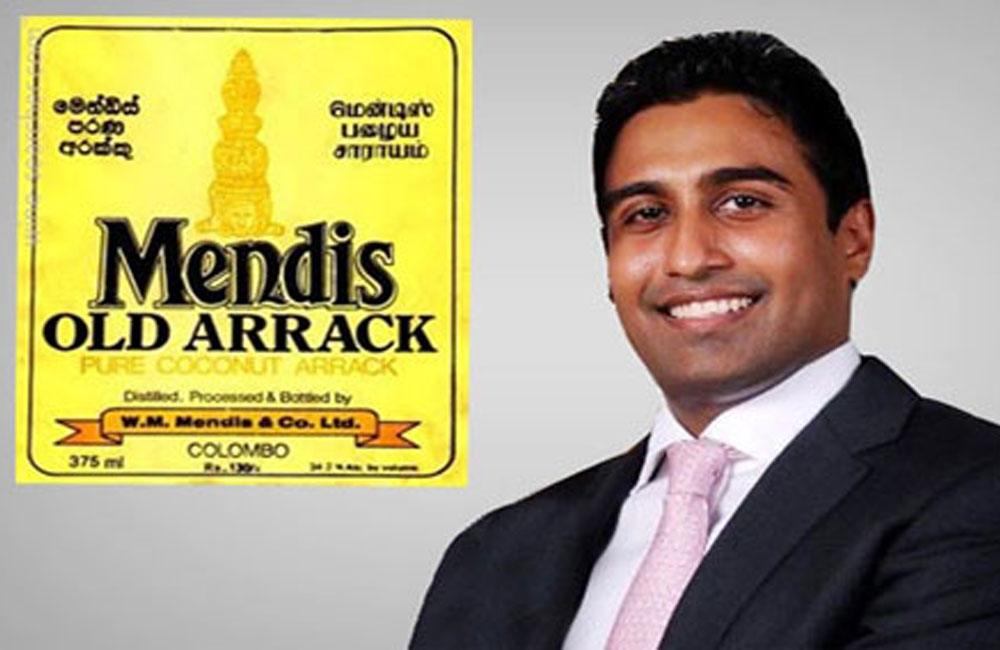Investigators have unearthed a massive tax evasion of more than Rs.6 billion by W.M. Mendis & Co. Ltd, one of the renowned liquor manufacturers in Sri Lanka, owned by Central Bank bond scam suspect Arjun Aloysius.
It has also defaulted Rs. 1.1 billion in excise duty up to now inflicting a massive loss to the Excise Department, according to a recent investigation by the Inland Revenue Department (IRD). This company has not paid necessary corporate income tax payment amounting to Rs. 2.63 billion and payment of VAT amounting to Rs. 3.55 billion to IRD during the previous regime and the IRD has taken legal action to recover these dues.
It was also revealed that this company has defaulted the repayment of a loan of Rs. 5 billion from the People’s Bank, Rs.4 billion loan from the Bank of Ceylon and Rs. 800 million from the People’s Leasing Company. It is also indebted to various institutions amounting to over Rs. 2 billion for the services provided for the company, the investigation revealed adding that these details are contained in official documents of those banks and financial institutions and are now in the public domain.
Meanwhile the legal alcohol industry tax revenue is shrinking due to an increase in the illegal production of liquor and tax evasion of a few errant companies and some retailers countrywide, industry sources alleged.
However, a new Finance Ministry report has revealed that the drop in tax revenue was the result of the decline in liquor production and liquor sales during the COVID-19 pandemic period.
The Business Times reported that leading liquor company heads have stated that high taxes, weak enforcement of existing rules, and corruption have resulted in the increase in illicit moonshine and ‘artificial toddy’. Another reason was the sale of tax-avoidance alcohol through the legal distribution system, they pointed out.
Alcohol tax is very high and strict regulations have been enforced by the successive governments prompting people to avoid taxes, bend rules and find loopholes in tax rules, they added.
A well planned illicit liquor delivery racket had been carried out by avoiding tax, through the illegal control of alcohol retail licenses by some alcohol producers and persons with high political connections, a top industry official disclosed.
This was one of the reasons for outstanding tax revenue of the Excise Department for the period of five years ending December, 2019 which stood at Rs. 2,376.2 million, the Parliamentary Committee on Public Accounts (COPA) said recently.
The decline in revenue from liquor observed in the months of March to May was reversed in the months of June to July showing the recovery of its growth momentum.
This recovery, however, has failed to prevent the decline in revenue by 4.1% to Rs. 72.5 billion during the first eight months of 2020 from Rs. 75.6 billion in the same period of 2019.

Leave your comments
Login to post a comment
Post comment as a guest